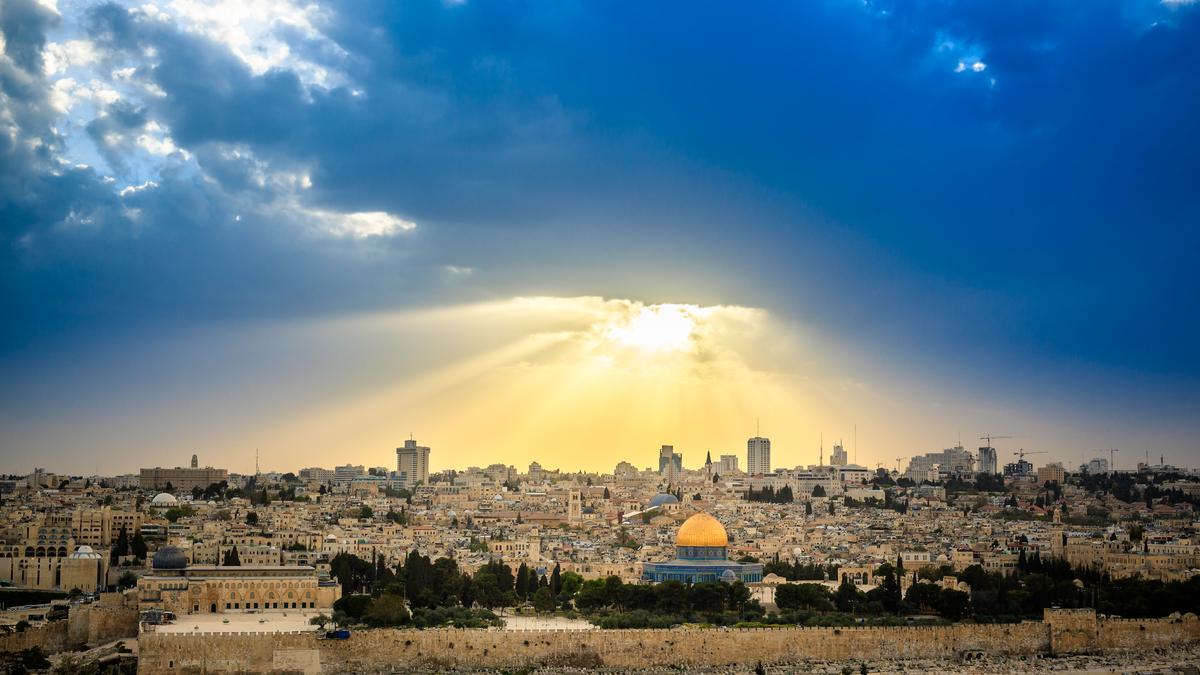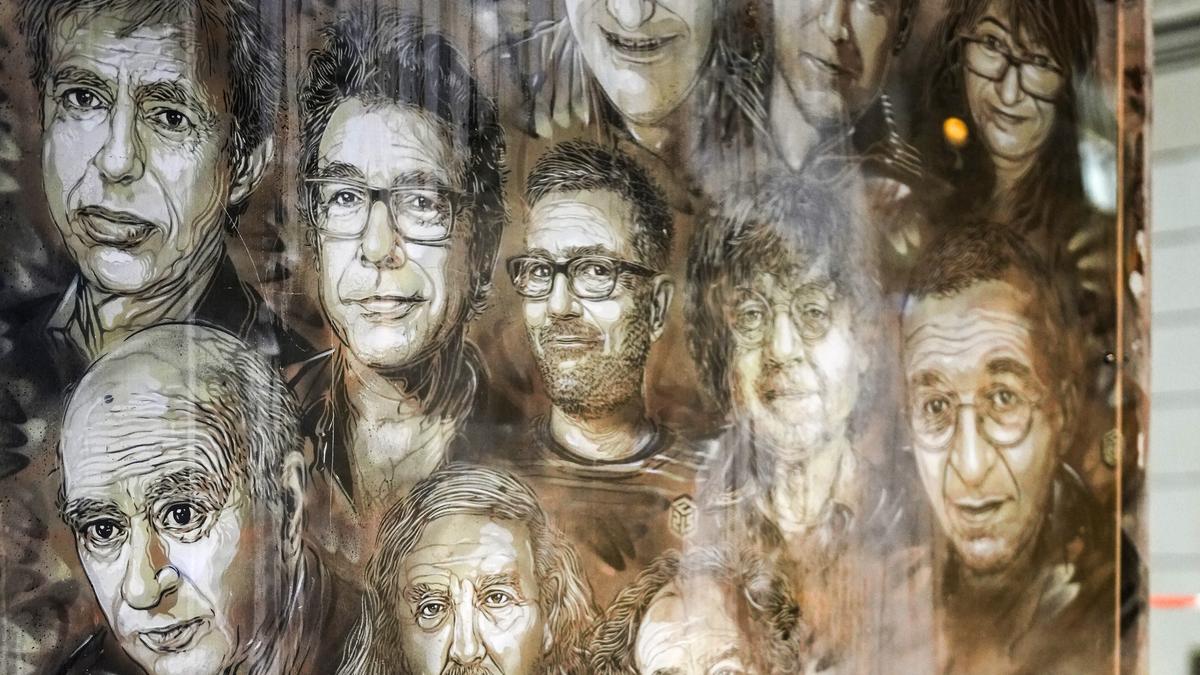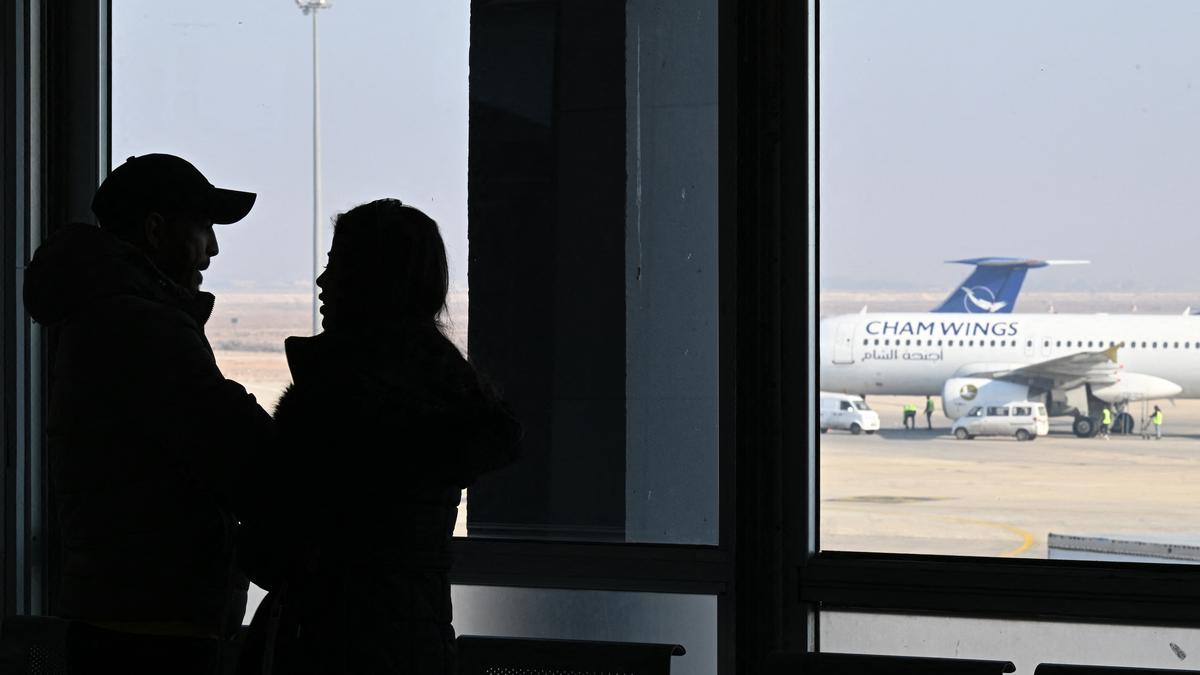In the 76 years of its existence, Israel has built itself as a powerful entity in a largely hostile region. But, says Stanly Johny in his new book, Original Sin: Israel, Palestine and the Revenge of Old West Asia, despite all the progress it has made, is a dark reality surrounding the state of Israel — the continuing occupation of Palestinian territories. The foreign affairs editor of The Hindu has been on multiple visits to the region, both pre and post the Hamas attack of October 7, 2023. In this edited excerpt, he explains why the two-state solution is practically dead, and traces the changes and continuity in India-Israel relations.
*****
In Jerusalem, I asked an Israeli diplomat about India’s support for the two-state solution (meaning, creation of an independent Palestinian state, as the state of Israel has already been existent). “India has condemned the 7 October [Hamas] attack. We see it. India’s support for UN resolutions doesn’t signal a policy change. India supports a two-state solution. In theory, we also support a two-state solution,” he said.
“Are you saying that Israel supports the creation of an independent, sovereign Palestine state?” I asked.
“We are not against the two-state solution,” he continued. “Details should be reached in negotiations. But who do we talk to? Hamas, which wants to eliminate us? Or Abu Mazen [Palestine Authority President Mahmoud Abbas]? Does he have any powers? We live with the threat of terrorism. So a future Palestine state, whenever it’s formed, should be unarmed.”
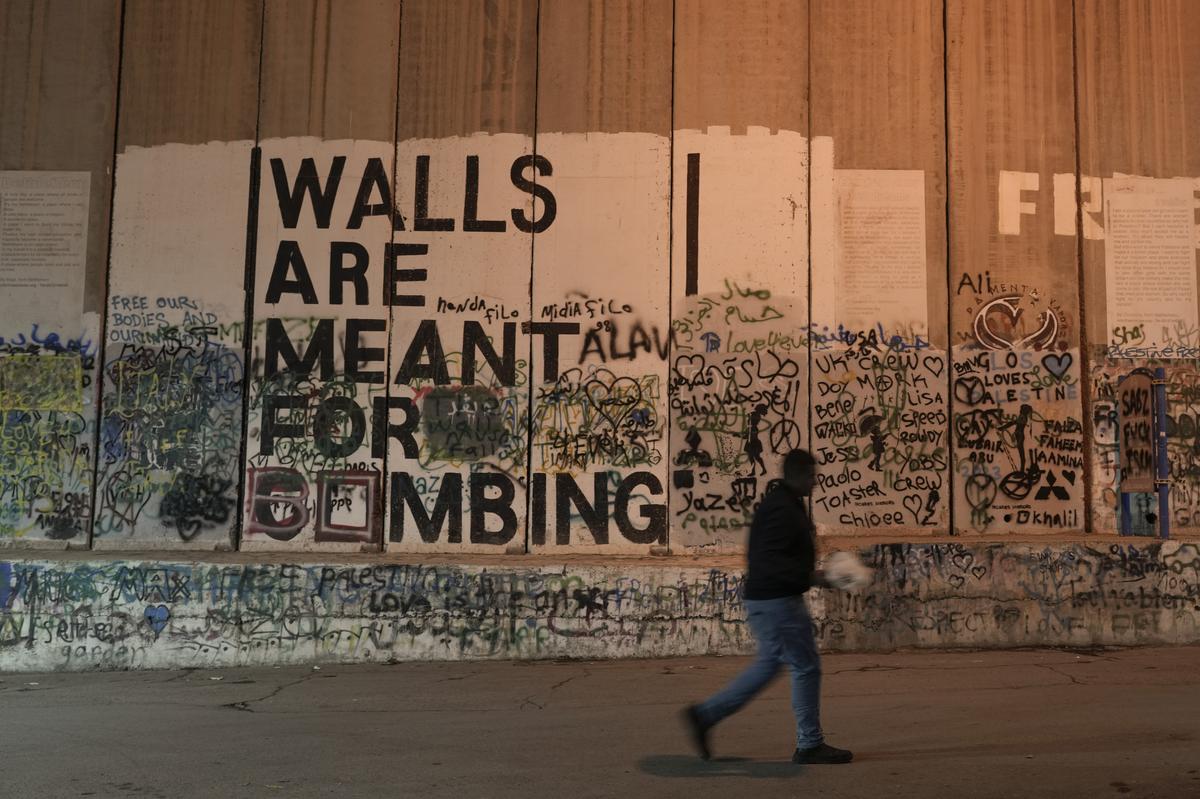
A man walks past a barrier with a mural that reads ‘Walls are meant for bombing’, in the West Bank city of Bethlehem. | Photo Credit: AP
Perceived threat
If Israel says a future Palestine state should be unarmed, it would not be a sovereign state. But the diplomat’s views are relatively moderate compared to the mainstream opinion in Israel’s political circles about the two-state solution. Prime Minister Benjamin Netanyahu has repeatedly said there wouldn’t be a Palestinian state on his watch. “I think that anyone who moves to establish a Palestinian state today, and evacuate areas, is giving radical Islam an area from which to attack the State of Israel,” he said in 2015. Naftali Bennett, the former Prime Minister, said in a 2013 interview, before he formed his government, “There is not going to be a Palestinian state within the tiny land of Israel.” By “the tiny land of Israel”, he was referring to the land between the Jordan River and the Mediterranean Sea, which was historical Palestine. The Knesset, Israel’s Parliament, has passed resolutions rejecting the Palestinian statehood. “A Palestinian state would pose an existential danger to the State of Israel and its citizens, perpetuate the Israeli-Palestinian conflict and destabilise the region,” according to a resolution passed in the 120-member Knesset in July 2024, with 69 votes in favour and nine against.

So the two-state solution, which India and a vast majority of the countries support, remains practically dead in Israel. But the diplomat seemed unperturbed about this contradiction. “You may have a position on the two-state solution. I may have my own position,” he said. “But that need not affect [the] India-Israel relationship. From our side, we are clear. We want to further improve our ties with India. India has also de-hyphenated Israel and Palestine so that we can deepen our bilateral partnership irrespective of the Palestine factor.” With his crisp comment, the diplomat was actually laying bare India’s position towards Israel-Palestine, which has seen both changes and continuity over the years.
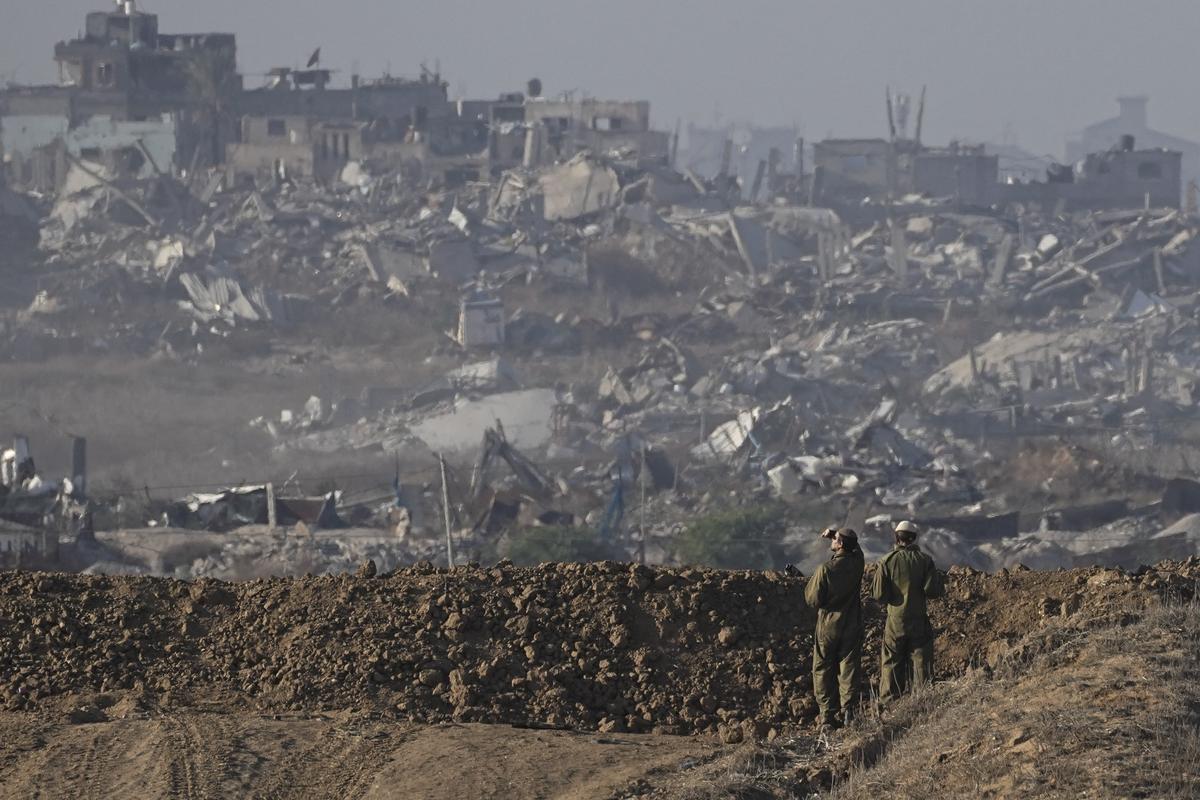
Israeli soldiers look at a destroyed part of Gaza City from their position on the Israel-Gaza border, as seen from southern Israel. | Photo Credit: AP
In the post-Independence years, India remained a steadfast supporter of Palestine, but maintained diplomatic engagements as well as backchannel defence relations with Israel, which was very keen on developing ties with New Delhi.
New fillip
Pro-Palestine supporters at a rally in Bengaluru. | Photo Credit: Murali Kumar K.
The rise of the right-wing Bharatiya Janata Party (BJP) to power in India, first in 1998, also gave a new fillip to relations with Israel. The BJP, free of the Congress’s foreign policy legacy, made it a priority to improve ties with Israel. The party’s rank and file watched Israel’s tough security model with admiration. The majoritarian character of Zionism in Israel–Palestine and the majoritarian ideology of Hindutva of the BJP saw ideological resonance in each other. All these factors expedited India’s gradual tilt towards Israel.
Excerpted with permission from HarperCollins India.
Stanly Johny will discuss his book at The Hindu Lit for Life in Chennai on January 18.Click here to register.
Published – January 03, 2025 09:15 am IST


